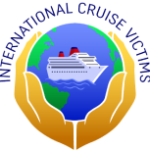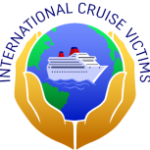Facebook Contest Story
How wonderful is winning a Facebook contest for a free cruise? For my 23-year-old daughter, it seemed to be the best piece of luck in the world. Now, however, we are wondering if something darker might have been involved … and, if so, what the implications are for others who enter Facebook contests.
My 23-year-old daughter, whose name I am not providing, in April saw a Facebook ad promising an all-expenses-paid (except for any taxes involved) weeklong cruise for two to Bermuda. To enter the contest, all that was required was to label the company a Facebook “friend” and provide the names of four people whom you would like to have accompany you on the trip.
A few weeks after entering, my daughter got a reply saying that she had won the contest. She was told that she had to sail from a specific port on a specific ship at a particular date; no substitutions would be allowed. When her initial choice of a cruise mate had to withdraw, the company allowed a substitute (another young woman), who also had to friend them on Facebook. We later got from the cruise line a credit-card receipt showing that more than $1700 had been paid for this trip. On its Facebook page, the company also said it would be running about 20 more such contests this year.
We began wondering, however, why the company that ran this contest provided little information about itself. Its Facebook page gave no business address, phone number, or employee names. Surely, we thought, a legitimate company would be more forthcoming than this.
So we sent the company a request for more information. Two days later, we were sent a link to an elaborate website, complete with names and even employment opportunities. However, we were not satisfied, and together with some techie friends did a little more investigation.
Eventually we found that the physical address given for the company on this website did not exist. The company itself was not registered anywhere. The reply from the company said that its contacts with a travel agent allowed them to get a two-for-the-price-of-one deal, but the cruise line involved told us that the person with whom they spoke about this deal … a man who identified himself only as Nick … paid the full price for two passengers.
So we decided that this offer was, at best, bogus. Exactly what the scam was, we don’t know; but we are convinced that it was a scam, if not something even more sinister, such as a sex trafficking entrapment ring.
After all, finding someone on Facebook allows them to see your photo. And it makes sense for the company to try to spread its advertising by asking the winners to provide the names of friends, but it is obvious that this allows for all kinds of possible abuse.
Most of all, when we called the cruise line for information on this company, the employee with whom we spoke urged my daughter NOT to get on that cruise.
Safety first. We have contacted our state’s Attorney General about this issue, and my daughter did not take up the free cruise. Among the abuses possible on cruise ships, we are wondering just what kind of evil could be arranged. And the old saying probably still holds true: If something sounds too good to be true, it probably is.


